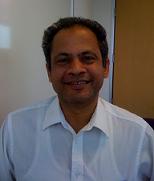Tutorial 1
Parallel application programming with parallel objects and Charm++
by Laxmikant Kale (UIUC)
Time and duration: Monday November 30 (full day)
The tutorial will present Charm++, a C++-based portable parallel programming system, designed with programmer productivity as a major goal. The tutorial will start with basic concepts, and introduce the language features via a series of examples. With Charm++, programmers decompose the computation into a larger number of objects, without regard to number of processors, while an adaptive runtime system assigns them to processors, automating resource management. Charm++ efficiently supports parallel composition, thus allowing multiple, independently written, parallel modules to effectively utilize available processors. It runs on multi-core desktops with shared memory, as well as large clusters of SMP nodes, and supports accelerators effectively in such environments. Further, its adaptive runtime system is leveraged to support multiple fault tolerant schemes, so applications can continue to run as components fail. Several highly scalable and widely used applications in science and engineering have been written using Charm++.
Speaker

Laxmikant Kale is a Professor of Computer Science at the University of
Illinois at Urbana-Champaign. He has been working on various aspects
of parallel computing, with a focus on enhancing performance and
productivity via adaptive runtime systems. His research is based on
the belief that only interdisciplinary research involving multiple CSE
and other applications can bring back well-honed abstractions into
Computer Science that will have a long-term impact on the
state-of-art. His collaborations include the widely-used Gordon-Bell
award winning (SC'2002) biomolecular simulation program NAMD, and
other collaborations on computational cosmology, quantum chemistry,
rocket simulation, space-time meshes, and other unstructured mesh
applications. He takes pride in his group's success in distributing
and supporting software embodying his research ideas, including
Charm++, Adaptive MPI and the ParFUM framework.
L. V. Kale received the B.Tech degree in Electronics Engineering from Benares Hindu University, Varanasi, India in 1977, and a M.E. degree in Computer Science from Indian Institute of Science in Bangalore, India, in 1979. He received a Ph.D. in computer science from State University of New York, Stony Brook, in 1985.






